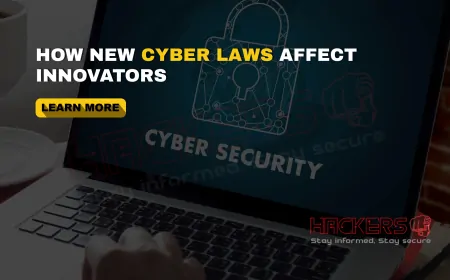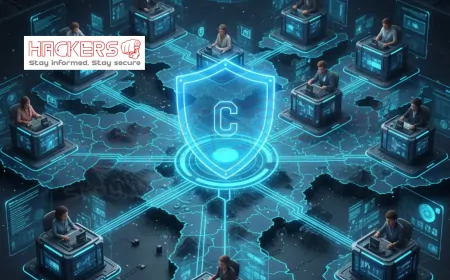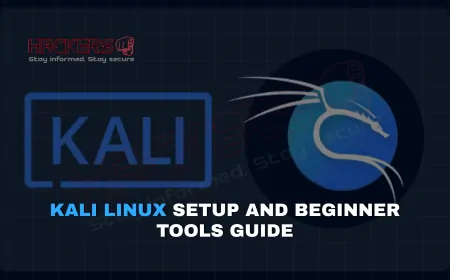How to Prepare for the CKS Exam Effectively in 2025
Imagine you're the guardian of a vast digital kingdom, where applications live in containers and scale like magic. But lurking in the shadows are cyber threats ready to breach your walls. In 2025, with cloud-native technologies dominating the IT landscape, securing Kubernetes environments isn't just a skill—it's a necessity. The Certified Kubernetes Security Specialist (CKS) exam is your chance to prove you're up to the task. Whether you're a DevOps engineer looking to advance or a beginner admin eager to specialize, passing CKS can open doors to exciting roles and higher pay. But how do you prepare effectively? This guide walks you through it all, from understanding the exam to hands-on practice, in a way that's easy to follow even if you're new to security concepts. We'll cover strategies tailored for 2025, incorporating the latest updates like alignment with Kubernetes v1.34. Let's dive in and turn that certification dream into reality.

Table of Contents
- Understanding the CKS Exam
- Prerequisites and Eligibility
- Creating a Personalized Study Plan
- Key Domains and Topics
- Recommended Resources
- Hands-on Practice Strategies
- Exam Day Tips and Techniques
- Common Mistakes to Avoid
- Conclusion
- FAQs
Understanding the CKS Exam
The CKS exam, offered by the Cloud Native Computing Foundation (CNCF) and the Linux Foundation, tests your ability to secure Kubernetes clusters throughout their lifecycle. It's not a theoretical test; it's hands-on, where you'll perform tasks in a simulated environment using the command line. This performance-based format means you'll be fixing vulnerabilities, configuring policies, and more, just like in a real job.
In 2025, the exam aligns with the latest Kubernetes minor version, likely v1.34 by September, updating every 4-8 weeks after new releases. It lasts 2 hours, with 15-20 tasks, and you need at least 67% to pass. The cost is $445, including one free retake, or bundled with training for $645. Your certification is valid for 2 years, after which you can renew by retaking or through continuing education.
Why take it now? With cyber attacks rising—think supply chain breaches like SolarWinds—companies need certified experts. CKS holders often see salary boosts and roles in DevSecOps. But success requires preparation; rushing in without practice is a common pitfall. Understanding the exam's focus on practical security helps set realistic expectations.
Prerequisites and Eligibility
Before jumping in, check if you're ready. The main prerequisite is passing the Certified Kubernetes Administrator (CKA) exam. Why? CKS builds on CKA's admin skills, assuming you know how to manage clusters before securing them.
No formal experience is required, but 6-12 months working with Kubernetes is ideal. If you're a beginner, start with free resources to build basics. Your CKA must be current; if expired, renew it first. Eligibility is straightforward—register via the Linux Foundation portal. In 2025, no major changes to prerequisites, but ensure your setup meets proctoring requirements: stable internet, webcam, and a quiet space.
Assess your skills honestly. If CKA felt tough, spend extra time reviewing. This foundation makes CKS preparation smoother, turning potential frustration into confidence.
Creating a Personalized Study Plan
A good plan is your roadmap to success. Aim for 2-4 months of study, depending on your background. Break it into phases: foundation, deep dive, practice, and review.
First, review CKA concepts—things like pods, deployments, and networking. Dedicate 1-2 weeks if needed.
Next, tackle CKS domains by weight. Spend more time on 20% areas like supply chain security. Set weekly goals, like "master RBAC this week."
Schedule daily study: 1-2 hours on weekdays, more on weekends. Include breaks to avoid burnout. Track progress with a journal or app.
Tailor to your style—if you're visual, watch videos; hands-on learners, build labs. In 2025, incorporate new trends like AI-driven security tools. Adjust as you go; if a topic is hard, extend time. Consistency beats cramming every time.
Key Domains and Topics
The exam covers six domains, updated in late 2024 for better alignment with real threats. Here's a breakdown:
- Cluster Setup (15%): Focus on initial secure configs, like network policies (rules for pod traffic) and CIS benchmarks (security checklists).
- Cluster Hardening (15%): Strengthen with RBAC (permission controls) and API access restrictions.
- System Hardening (10%): Secure the underlying OS, minimizing attack surfaces.
- Minimize Microservice Vulnerabilities (20%): Protect apps with pod security and secrets management.
- Supply Chain Security (20%): Ensure safe images via scanning and signing.
- Monitoring, Logging, and Runtime Security (20%): Detect threats with logs and behavioral analysis.
For each, understand concepts and practice commands. For example, in supply chain, learn Trivy for scanning. This structure guides your study, ensuring balanced coverage.
Recommended Resources
Quality resources make preparation efficient. Start with the official curriculum on GitHub for outlines. For courses, the Linux Foundation's Kubernetes Security Essentials (LFS260) is excellent, bundled at $645.
Udemy's CKS course by Mumshad Mannambeth is popular for its practice tests. KodeKloud offers interactive labs. Books like "Kubernetes Security" by Liz Rice provide depth.
For free, Kubernetes docs and blogs like DevOpsCube. Here's a table of top resources:
| Resource Type | Recommendation | Why It's Useful |
|---|---|---|
| Official Course | LFS260 Kubernetes Security Essentials | Structured learning with hands-on labs aligned to exam. |
| Online Course | Udemy CKS by Mumshad Mannambeth | Affordable, with practice questions and explanations. |
| Simulator | Killer.sh | Realistic exam mocks, included with registration. |
| Book | Container Security by Liz Rice | In-depth on container threats and defenses. |
| Free Resource | Kubernetes Documentation | Allowed in exam, essential for reference. |
Mix paid and free for best results. Communities like Reddit's r/kubernetes offer tips. Choose based on your learning style.
Hands-on Practice Strategies
Theory is good, but practice is key. Set up a local cluster with Minikube or KIND for safe experimentation. Simulate scenarios: create vulnerable setups and fix them.
Use Killer.sh for mocks—two 36-hour sessions with 20-25 questions. Time yourself to build speed. Tools like Falco for runtime, Trivy for scanning—practice installing and using them.
Join study groups or forums for discussions. Build projects, like a secure app deployment. Hands-on reinforces concepts, making exam tasks feel familiar.
Exam Day Tips and Techniques
On exam day, stay calm. Run the system check early. During, read tasks carefully—misunderstanding costs time. Use allowed docs wisely; bookmark favorites.
Manage time: Skip tough tasks, return later. Flag for review. If stuck, think step-by-step. After, relax—you've prepared well.
Common Mistakes to Avoid
Don't underestimate time management; practice under limits. Avoid memorizing without understanding—exam tests application. Neglecting high-weight domains is risky. Over-relying on one resource limits perspective. Finally, ignoring health—rest and balance prevent burnout.
Conclusion
Preparing for the CKS exam in 2025 is about building practical security skills for Kubernetes. We've covered understanding the exam, prerequisites, study plans, domains, resources, practice, tips, and mistakes. With dedication, the right tools, and consistent effort, you'll pass and gain valuable expertise. Start today—your future in cloud security awaits. Remember, it's not just a cert; it's a step toward mastering a critical field.
FAQs
What is the CKS exam?
It's a performance-based certification testing Kubernetes security skills.
Do I need CKA for CKS?
Yes, passing CKA is required.
How much does CKS cost?
$445, with bundles up to $645.
What Kubernetes version for 2025?
Aligned with latest, like v1.34 by September.
How long is the exam?
2 hours.
What is the passing score?
67%.
How long is CKS valid?
2 years.
What resources for preparation?
LFS260 course, Udemy, Killer.sh.
Is hands-on practice necessary?
Yes, essential for the performance-based format.
What are the domains?
Six areas like cluster setup and monitoring.
Can beginners take CKS?
With CKA and preparation, yes, but build basics first.
What tools in the exam?
kubectl, scanning tools like Trivy.
How to manage time in exam?
Practice mocks, skip and return to hard tasks.
Is Killer.sh included?
Yes, with two simulations.
What if I fail?
One free retake included.
Any 2025 changes?
Updated to latest Kubernetes, no major structural changes.
Best course for CKS?
Mumshad's Udemy or LFS260.
How long to prepare?
2-4 months, depending on experience.
What is RBAC?
Role-Based Access Control for permissions.
Where to register?
Linux Foundation portal.
What's Your Reaction?










































































